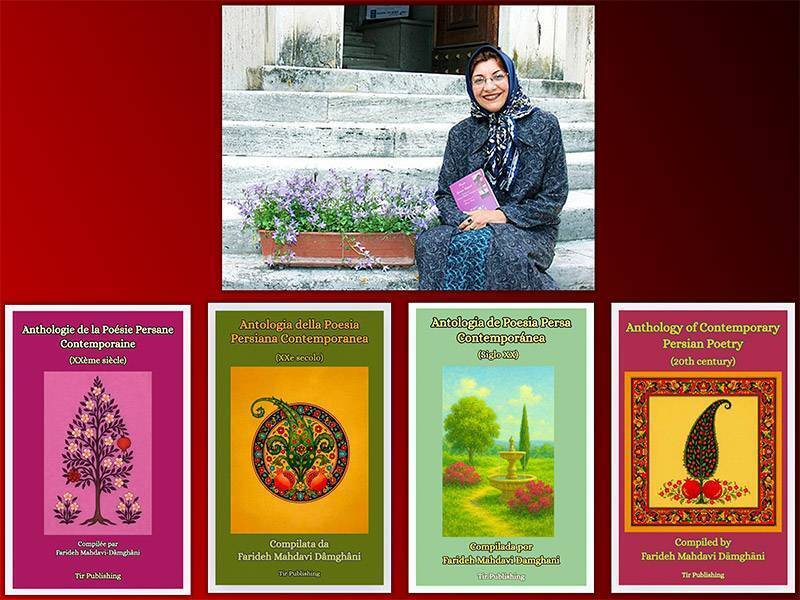From War to Words: Farideh Damghani’s Anthology Brings 110 Iranian Voices to the World

Damghani, known for her academic work in medieval European literature and translations of Western classics such as Dante and Milton, has long bridged East and West. Yet her latest project—a vast selection of Persian poems translated into French, English, Italian, and Spanish—marks a deeply personal and patriotic turn.
“I was overwhelmed by how the world reacted to the Israeli attacks,” she told IQNA, referring to the unprovoked Israeli aggression on Iran back in June with the support of the US.
“Some nations stood by Iran with surprising courage, others repeated the falsehoods of hostile media,” she said, adding that she wanted to respond—but not with anger or politics but with the power of poetry.
That conviction led her to rediscover forgotten files on her computer—translations she had made a decade earlier of poems by contemporary Iranian writers. “It felt like divine guidance,” Damghani says.
From those rediscovered texts grew an ambitious anthology that now spans 110 Iranian poets—men and women, past and present—presented in four major world languages of English, Spanish, Italian, and French, under the title “Anthology of Contemporary Persian Poets”.
The number itself carries symbolic weight. “At first I reached 100 poets,” she says, adding that her husband asked for addition of 10 as the number 110 represents Imam Ali (AS). “Of course, following this suggestion was not only something I felt obliged to do, but also something very pleasant for me!”
Read More:
Each addition, she says, felt guided by “spiritual signs”—names appearing in her dreams, sudden recollections of verses. Among the final inclusions was Ali Akbar Dehkhoda, whose elegy for Mirza Jahangir Khan Sur-e Esrafil, she says, was “one of the hardest to translate for its emotional and linguistic depth.”
The work, she explains, was painstaking. Translating poetry is never mechanical; it requires re-creating meaning, rhythm, and emotion across languages.
Some verses, like Fereydoon Moshiri’s or Nima Youshij’s, “seemed simple yet resisted translation for days.”
For Damghani, the project was not just literary but moral. “Western media are not used to and have no interest in defending our dear Iran and Iranians.”
Her anthology opens with verses from Ferdowsi’s Shahnameh—a deliberate gesture of pride and defiance. “After an ignorant individual mocked Ferdowsi online… I felt it was my duty to begin with him,” she says. “He is our national treasure, as Dante is for Italy.”
She also includes lines from Rumi, Hafez, and Saadi, ensuring that readers encounter the full spectrum of Iran’s literary heritage before turning to the modern voices.
Read More:
Among the 110 poets are renowned figures such as Sohrab Sepehri, Forough Farrokhzad, Mehdi Akhavan-Sales, and Simin Behbahani, alongside newer and lesser-known names like Aria Ariapur, whose poem closes the anthology.
“Two of my friends—one Italian and the other French, both highly educated—expressed their spiritual emotions after reading that poem,” she said, referring to Ariapur’s poem.
Women poets occupy a prominent place, from Parvin E’tesami and Tahereh Saffarzadeh to younger voices such as Leila Kordbacheh and Roya Ebrahimi. “I wanted no discrimination,” Damghani insists.
Despite international sanctions that often hinder Iranian writers and translators, her anthology has now reached readers worldwide through digital platforms including Amazon, Apple Books, Google Play, and Barnes & Noble. Damghani considers that a small miracle.
For her, this publication marks both a cultural act and a prayer. The completion and publication of the series at this time, she says, was not by chance but came as the world needed to see Iran differently—not through news headlines, but through poetry.
4312832



